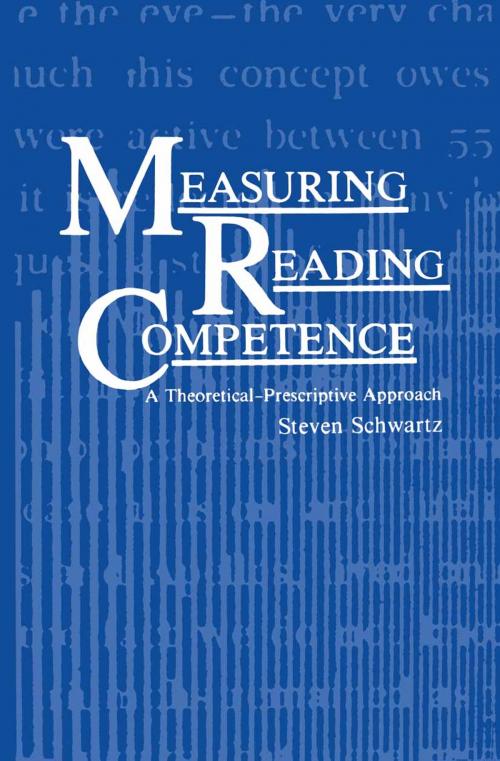Measuring Reading Competence
A Theoretical-Prescriptive Approach
Nonfiction, Health & Well Being, Psychology, Cognitive Psychology, Reference & Language, Education & Teaching| Author: | S. Schwartz | ISBN: | 9781489903877 |
| Publisher: | Springer US | Publication: | June 29, 2013 |
| Imprint: | Springer | Language: | English |
| Author: | S. Schwartz |
| ISBN: | 9781489903877 |
| Publisher: | Springer US |
| Publication: | June 29, 2013 |
| Imprint: | Springer |
| Language: | English |
This book concerns measuring reading skills. It is not meant to be a compre hensive survey of reading research or a review of all possible approaches to reading measurement (although considerable attention is given to both subjects). Instead, the purpose of this book is to present a coherent, theoretically based approach to measuring reading competence. The ability to measure a phenomenon is an important prerequisite for scientific analysis. As Lord Kelvin said, "One's knowledge of science begins when he can measure what he is speaking about and express it in numbers." Unfortunately, not just any numbers will do. Presently available reading tests provide their users with a plethora of numbers-age levels, percentiles, grade equivalents-but their scientific value is questionable. The problem is that there is more to scientific measurement than merely assigning numbers to arbitrarily chosen behaviors. Scientific measurement occurs only within the confines of a theory, and most reading tests are atheoretical. Recent years have witnessed an explosive growth in reading research.
This book concerns measuring reading skills. It is not meant to be a compre hensive survey of reading research or a review of all possible approaches to reading measurement (although considerable attention is given to both subjects). Instead, the purpose of this book is to present a coherent, theoretically based approach to measuring reading competence. The ability to measure a phenomenon is an important prerequisite for scientific analysis. As Lord Kelvin said, "One's knowledge of science begins when he can measure what he is speaking about and express it in numbers." Unfortunately, not just any numbers will do. Presently available reading tests provide their users with a plethora of numbers-age levels, percentiles, grade equivalents-but their scientific value is questionable. The problem is that there is more to scientific measurement than merely assigning numbers to arbitrarily chosen behaviors. Scientific measurement occurs only within the confines of a theory, and most reading tests are atheoretical. Recent years have witnessed an explosive growth in reading research.















